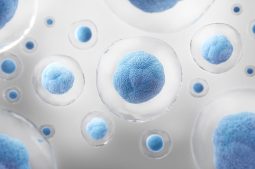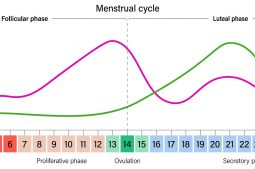

If you’re pregnant, you have been through puberty. You may already know about the effects of hormonal changes on your body and your mood. But, as with puberty, these changes and fluctuations are essential for the process of forming a new life. So, in the bigger picture, they are good for you and your baby…. View Article

For yet another year, IVI has been present at the congress of the Society for Reproductive Research (SRI), which held its 70th edition in Brisbane. It is one of the most important reproductive medicine events in the world, which is why we presented several papers, some of which received awards. Research activity is one of… View Article

Taboos in fertility are widespread. The time has come for us to put an end to these taboos. During more than 30 years IVI has been at the forefront of reproductive medicine. We have put a face and a name to many cases of men and women who dreamed of having a child. We have… View Article

What is a chemical pregnancy? A chemical pregnancy is a very early miscarriage, detectable through biochemical means – a home pregnancy test or a blood test. It is not detectable through an ultrasound scan or the presence of a fetal heartbeat. For someone who is longing to become pregnant, it can be just as devastating… View Article

How to track ovulation with PCOS? Polycystic ovarian syndrome (PCOS) is a very common condition which affects around one in ten women. If you or someone you know has PCOS, you probably also know that it’s one of the most common causes of infertility. This is because it tends to go along with irregular periods…. View Article

Implantation cramping is a good example of how your body could be signaling that you have conceived even before it is detectable on a home test. On the other hand, a slight twinge or cramp could be a signal that your next period is about to begin. How to tell the difference? When you’re trying… View Article

Many aspects of human fertility are complicated; others are straightforward and simple. To conceive a baby, a healthy sperm has to meet and fertilize a mature egg. And in a normally functioning menstrual cycle, the mature egg is only available for around 24 hours following ovulation. Considering this, there is a first question a woman… View Article

For most women who are not pregnant, the normal size of the uterus is about the same as a clenched fist or a pear. Naturally the uterus, or womb, it is an expandable organ, capable of filling out to the size of a watermelon during pregnancy. However, there can be other reasons for a bulky… View Article

The idea that there is any difference between the left and right ovary might come as a surprise to some. After all, it would be understandable to assume that, since we have two ovaries, the work of producing a mature egg each month would be distributed equally between the left and right ovary. But then… View Article

Prof. Antonio Pellicer, CEO of IVIRMA, heads the ranking of the best researchers in Spain in the category of Obstetrics and Gynecology, and in Reproductive Biology. This is reflected in the h-index, based on the scientific production with the greatest impact throughout the world. The truth is that Professor Pellicer has led this classification for… View Article
